India has witnessed a change in all its services for the past 7 decades. From Railways to the Army, every organization has come under scrutiny at least once in during its existence. However, the Judiciary and UPSC are two of the most untouched organizations in India. Whenever there is a debate that highlights the need for improvement in these services, the opposition, (regardless of the party) starts criticizing the government for trying to make changes in constitutional bodies and the justice system of India. Today, The Modi government is being targeted for their UPSC Lateral Entry Notifications which they have now taken back after much criticism.
The Modi government’s decision to cancel the latest advertisement for recruiting joint secretaries and other key positions is exactly what we were afraid of. The “tough” decision-makers in the BJP-led NDA alliance which is in power right now, are now feeling a much larger force of pressure than ever before. From 2014-2024, they enjoyed complete power and this fact gave them a lot of confidence as they could not be taken out of power by any opposition party.
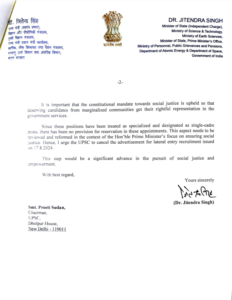
Today, making the political environment of the nation more balanced, we are again facing the threat of a coalition government that is not making the right decisions as of now. This move has reignited debates about the nature of bureaucracy in India, the fairness of recruitment practices, and the implications for social justice and representation. In this blog, we explore the concept of UPSC lateral entry, the reasons behind its introduction, the controversy it has generated, and the reasons why the Modi government decided to withdraw it.
What is UPSC Lateral Entry?
The UPSC Lateral entry concept is a more accommodating way of filling mid- and senior-level government posts with people who are not from the conventional government services. Examples of these people include academics, professionals from the private sector, and public sector workers. Under lateral entry, specialists can be directly appointed to the joint secretary, director, and deputy secretary-level positions in various ministries, as opposed to traditional civil service admission through competitive examinations administered by the Union Public Service Commission (UPSC).
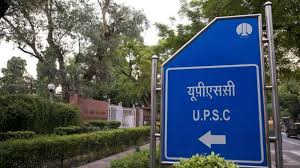
Studying in a different background and then entering a market to improve governance and policy execution is known as a lateral entrance. With the potential for extension based on performance, these appointments are normally made on a contract basis for a duration of three to five years. The positions covered by lateral entry are considered crucial for sectors such as finance, electronics, environment, and emerging technologies.
When Was UPSC Lateral Entry Introduced First?
The concept of lateral entry into bureaucracy was first recommended by the Second Administrative Reforms Commission (ARC) established in 2005 during the UPA government led by Congress. The ARC, headed by Veerappa Moily, emphasized the need for hiring individuals from outside the traditional civil services to fill roles that required specialized knowledge. This recommendation was aimed at improving policy implementation and governance by tapping into the expertise available in the private sector, public sector undertakings, and academia.
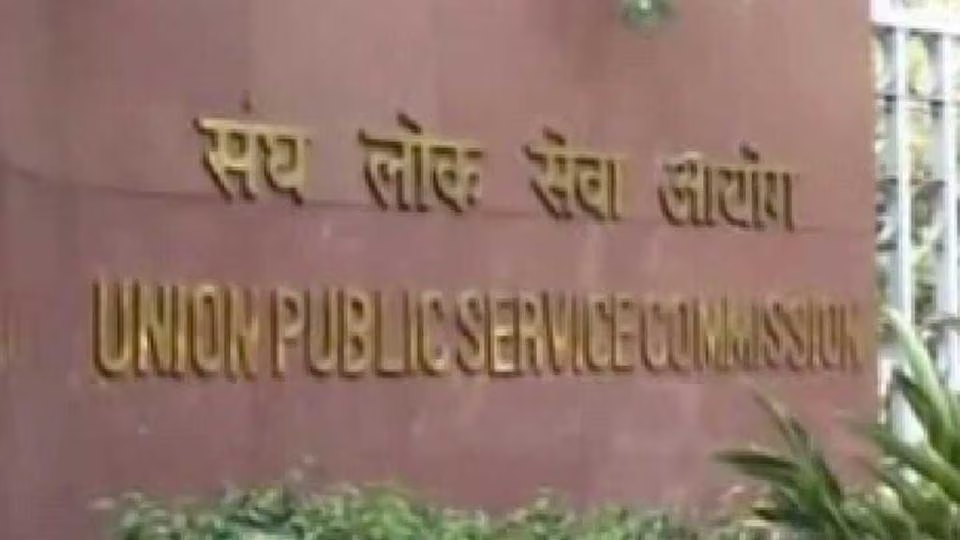
However, it wasn’t until 2018, during Prime Minister Narendra Modi’s tenure, that the first set of vacancies through lateral entry was introduced. This move was in line with the recommendations made by the Niti Aayog in its three-year Action Agenda in 2017, which advocated for the induction of personnel at middle and senior management levels in the central government. Since then, lateral entry has been used to appoint 63 individuals to various ministries, with 57 of them currently serving in their respective roles.
Why the Controversy over UPSC Lateral Entry?
As usual for India, any scheme or bill that doesn’t help or talk about Muslims in India is a bad thing. Similarly, anything and everything that talks about bringing changes such as the Waqf Amendment Bill 2024, or the Citizenship Amendment Bill 2019. Now, the new fashion is to show that the BJP is trying to buy every organization in the country. They have already declared CBI and ED as BJP assets. Now they are targeting the Judiciary and the UPSC.

The controversy surrounding UPSC lateral entry primarily stems from concerns about the bypassing of traditional recruitment methods and the potential implications for social justice and reservation policies. Critics argue that by allowing lateral entry, the government is effectively sidelining the UPSC’s competitive examination process, which is designed to ensure a merit-based and transparent selection of civil servants. Moreover, the lateral entry process does not have mandatory reservations for Scheduled Castes (SCs), Scheduled Tribes (STs), Other Backward Classes (OBCs), or Economically Weaker Sections (EWS), which has led to accusations of undermining the constitutional mandate for social justice.
Opposition parties, including the Congress and the Rashtriya Janata Dal (RJD), have been vocal in their criticism of the lateral entry process. They argue that the absence of reservations in these appointments deprives marginalized communities of their rightful representation in government services. Congress president Mallikarjun Kharge accused the BJP government of “ripping apart the Constitution,” while RJD leader Tejashwi Yadav described the UPSC job advertisement as a “cruel joke” on the country’s reservation system.
How Will the UPSC Lateral Entry Affect Bureaucracy?
The introduction of lateral entry into the Indian bureaucracy was seen as a potential game-changer, bringing in experts with specialized knowledge and skills that may not be available within the traditional civil services. Proponents of lateral entry argue that it can help bridge the gap between government and industry, improve policy implementation, and infuse fresh ideas into the bureaucracy.
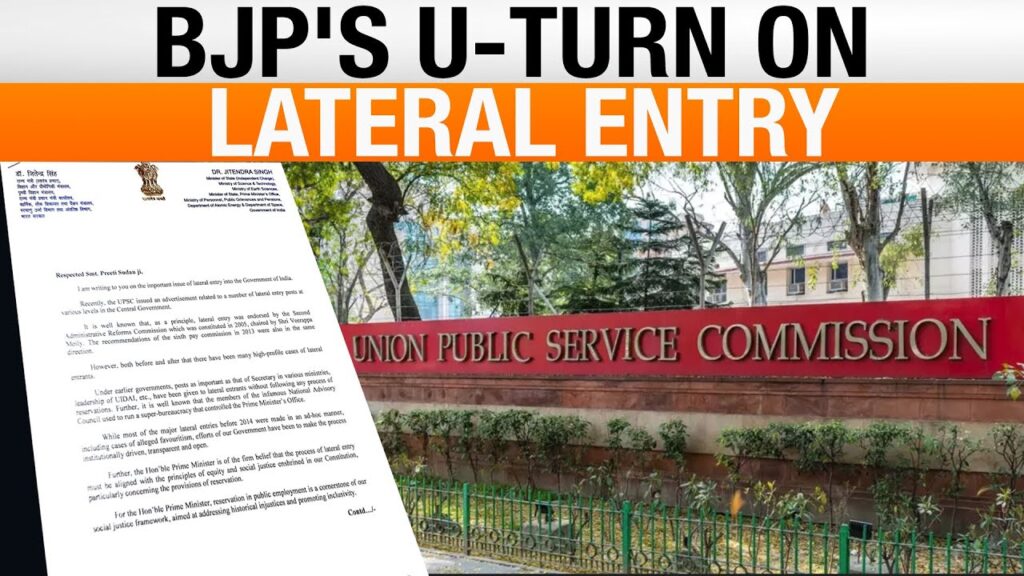
However, there are also concerns about the potential downsides of lateral entry. Critics argue that it could lead to a lack of continuity and coherence in policymaking, as lateral entrants may not have the same level of understanding of government processes as career civil servants. There is also the risk of creating a parallel bureaucracy, where lateral entrants may not fully integrate into the existing administrative structure, leading to friction and inefficiencies.
Moreover, the lack of reservation in lateral entry appointments has raised concerns about social justice and representation. The traditional UPSC recruitment process is designed to ensure that candidates from marginalized communities have an opportunity to serve in the government, and bypassing this process through lateral entry could undermine these efforts.
Why Did the Modi Government Take it Back?
The Modi government’s decision to withdraw the latest advertisement for UPSC lateral entry appointments can be attributed to several factors. One of the key reasons is the growing criticism and opposition from various political parties and social justice advocates. The controversy surrounding the lack of reservation in lateral entry appointments has put the government under pressure to reconsider its stance.
In a letter to the UPSC chairperson, Union Minister Jitendra Singh emphasized the importance of upholding the constitutional mandate for social justice. He acknowledged that while lateral entry was introduced to bring in specialized knowledge, it is crucial to ensure that deserving candidates from marginalized communities receive appropriate representation in government services. This statement reflects the government’s recognition of the need to balance the benefits of lateral entry with the imperative of social justice.
Furthermore, the decision to cancel the advertisement can also be seen as a response to the broader political context. The upcoming elections and the potential backlash from voters, particularly from marginalized communities, may have influenced the government’s decision to backtrack on lateral entry.
Reaction by the Opposition Parties Over UPSC Lateral Entry
The controversy over UPSC lateral entry has provided an opportunity for opposition parties to criticize the Modi government. Congress leader Rahul Gandhi, along with other opposition figures, has been vocal in accusing the government of undermining the reservation system and social justice framework. They argue that lateral entry is a deliberate attempt to exclude SCs, STs, OBCs, and EWS candidates from key government positions.
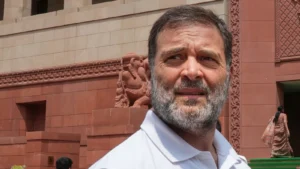
Rahul Gandhi has consistently questioned the BJP’s commitment to social justice, and the lateral entry controversy has added fuel to his criticisms. He, along with other opposition leaders, has called for a review of the lateral entry process to ensure that it aligns with the principles of equity and fairness.
The Rashtriya Janata Dal (RJD), led by Tejashwi Yadav, has also condemned the lateral entry system, labeling it as an attack on the reservation system. Yadav’s comments reflect the broader concerns of marginalized communities, who fear that lateral entry could erode the gains made in securing representation in government services.
Our Opinion:
We think that experts from different Governmental or Private sectors can help improve the Bureaucracy in Junior, Mid, and Higher Secretary levels. The UPSC Lateral Entry was supposed to be a progressive move by the government which would have given a chance to many reliable professionals such as Doctors, Engineers, Chartered Accountants, and many others.
The opposition and the UPSC itself don’t want any changes in their system and they have cited various reasons for their concerns. We just want our readers to know that every developed country that you guys aspire to work in, uses lateral entries in all their governmental departments. They use their knowledgeable professors, philosophers, thinkers, economists, chemical engineers, doctors, etc for the betterment of their systems. To know more about the opposition’s hypocrisy on this matter, click Here.
The UPSC lateral entry controversy highlights the complex interplay between the need for specialized expertise in government and the imperative of social justice and representation. While lateral entry was introduced to improve governance by bringing in experts from outside the traditional civil services, it has also raised important questions about the fairness and inclusivity of the recruitment process.
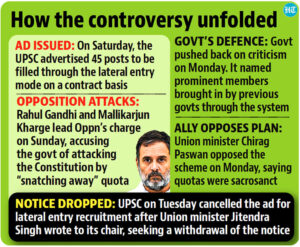
The Modi government’s decision to cancel the latest advertisement for lateral entry positions reflects its sensitivity to the concerns raised by opposition parties and social justice advocates. As the debate continues, it will be important to find a balance that allows for the infusion of new talent into the bureaucracy while ensuring that the principles of equity and fairness are upheld.
The future of UPSC lateral entry remains uncertain, but any reforms to the system will need to take into account the diverse perspectives and interests involved. Whether through modifications to the lateral entry process or alternative mechanisms, the goal should be to create a government that is both efficient and representative of the diverse population it serves.
We hope that the people of this country stop believing in people like Dhruv Rathee and Akash Banerjee and start reading about some facts. They have to become more politically aware and they need to know the truth.
Till the next update
This is New India
Signing Off…
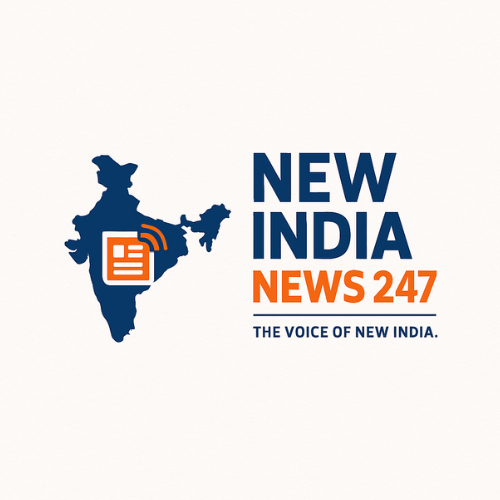
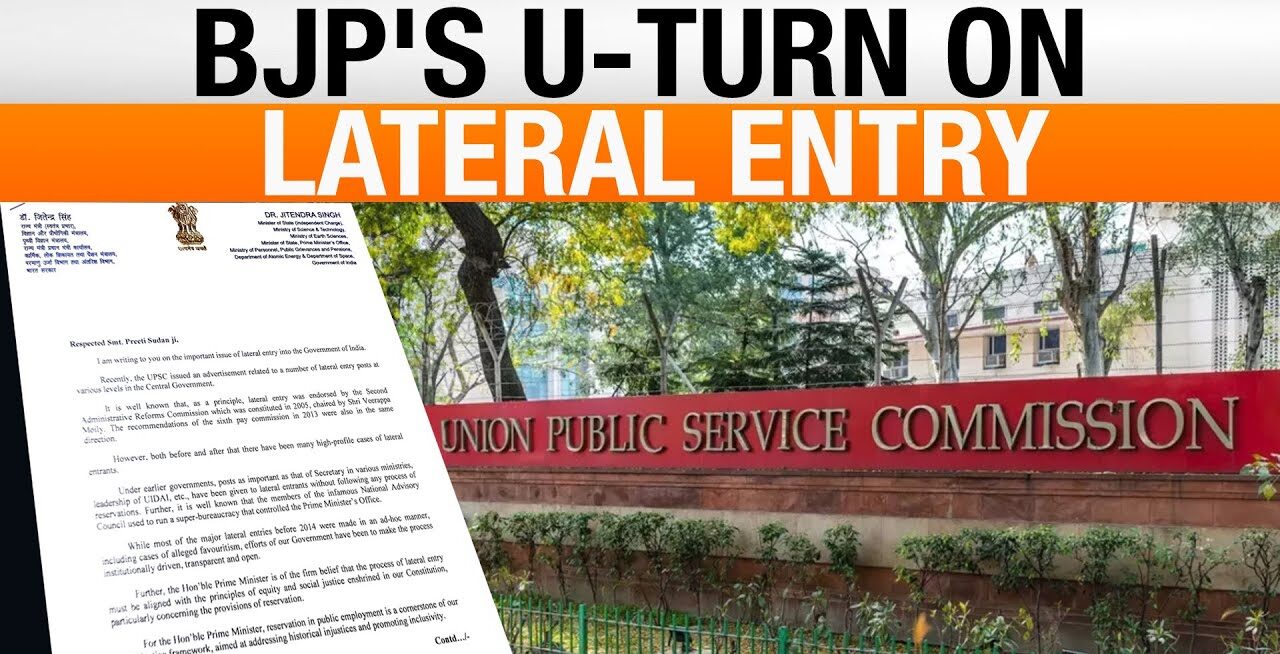
Leave a Reply